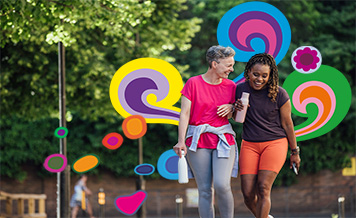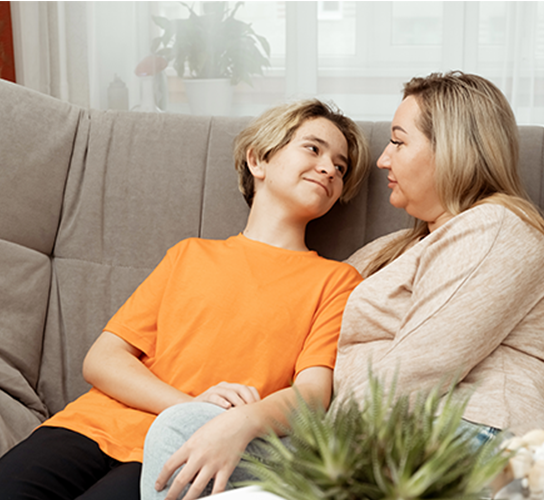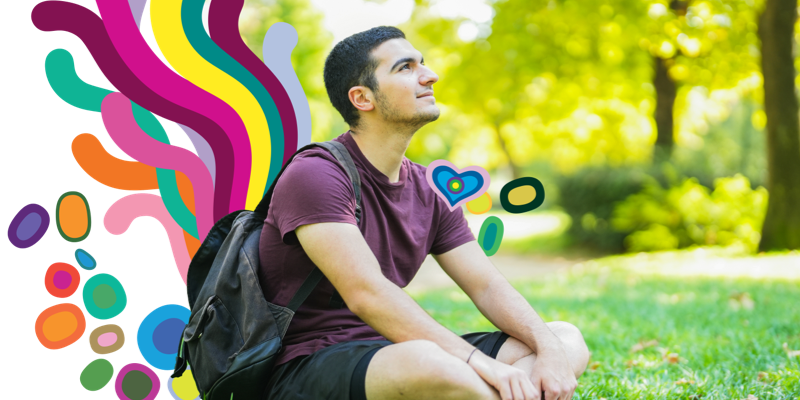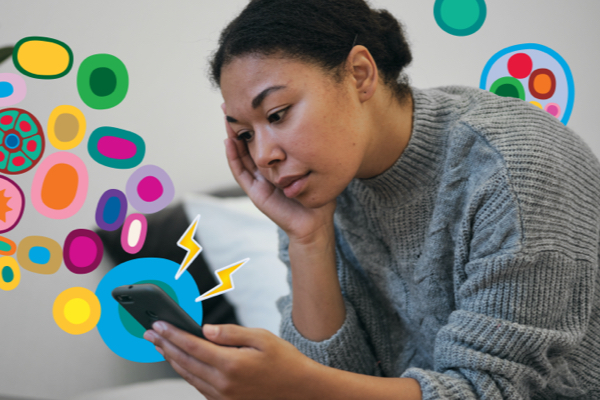What is loneliness?
Research from Medibank revealed more than half of Australians surveyed feel lonely on one or more days during a typical week. On top of this, the report revealed 1-in-3 were classified with a high level of loneliness^.
Young and single people were the most likely to report feeling lonely. Despite how common it is, stigma around loneliness persists. Loneliness expert and Scientific Chair of Ending Loneliness Together, Dr Michelle Lim says the discussion around loneliness is something we need to change.
“There is a societal and cultural lens that paints over this issue. That loneliness itself is somehow your fault – it’s your problem.”
“We need to talk a little bit more about loneliness. At the same time we need to equip people to actually learn to connect with people who are lonely.”

How to deal with loneliness and feel more connected
Learn what to do when you feel lonely, and how to join a group, meet new people and feel more connected.

How to make friends as an adult
Feeling lonely as an adult? Learn how to make new friends and maintain strong relationships through key life changes like starting a new job or university.

5 tips to improve your mental health
Simple, practical things you can do to improve your mental health, and advice about what to do if you need extra help.
What does loneliness feel like?
While we know loneliness is common, many people still don’t admit to, nor speak openly about it. In fact, many people may not even recognise that what they are feeling is loneliness.
“If you feel like you are in conversations where you are just not in tune with other people, you feel misunderstood, you feel like even though you have people around you, you still have no one to talk to or turn to. Those kinds of feelings signal loneliness,” says Michelle.
“One critical thing is having that confidante – without that person you can go to and talk to in your life, it can very easily become lonely.”
Alone or lonely?
Understanding the difference between social isolation and loneliness is one of the first steps to understanding the issue.
You can be socially isolated and not feel lonely; some people may only need a few meaningful connections to feel satisfied. Conversely, others can be surrounded by a large group of family and friends and still feel lonely if they don’t feel connected or understood.

Who is most at risk of feeling lonely?
According to recent research, loneliness can be triggered by life events, such as moving house, changing jobs, becoming a parent, retirement, losing a friend or a loved one.#
These triggers interplay with personal risk factors - things like our age, living alone, having fewer financial resources, or having migrated from a different country. Even how and why you use social media can increase your risk of experiencing loneliness.
Those most vulnerable to chronic loneliness are the ones facing structural barriers, says Michelle.
For instance, health can also be a significant structural barrier for people experiencing loneliness. Mental health conditions like social anxiety disorder can prevent people from connecting for fear of social situations, creating a cycle of loneliness. Physical health issues, for example, those that may cause problems with mobility or ongoing pain, can prevent people from getting out and connecting with others.
When does loneliness become a problem?
It's well documented that loneliness has an impact on both your physical and mental health.
In fact, says Michelle, some of the most robust evidence is around the association between loneliness and poor heart health. There is also evidence around mental health issues like anxiety and depression, sleep quality and cognitive decline.
But we all experience loneliness from time to time. How much loneliness is bad for you? We don’t really know, but Michelle suspects that it is the duration of loneliness that matters.
“What I suspect I can see in my data is – even if loneliness is experienced in a small amount, but long term it actually leads to more detrimental outcomes in the long term.”
“We can take the best guess. If loneliness is neglected, if it’s ignored, if it’s something that we don’t intervene early, we know that it can lead to poorer health outcomes.”

What should you do if you feel lonely?
According to Michelle, it is important we use the feeling of loneliness as a driver and a motivator to make a change.
“The best first step is to ask what you need. Social needs are very complex. What you might need, may not be what I need. Maybe you thrive in groups and you want to do a shared interest group – but that might be terrifying for me,” she says.
“There are many options. There are things that the person themselves needs to assess. What works for one person will not work for the other.”
Read more about strategies to deal with loneliness.
Medibank and Ending Loneliness Together have partnered to help raise awareness of loneliness as a key health issue in Australia, collaborating to understand the most effective, evidence-based solutions to address loneliness and its impacts on health.
Where to go for help
If your life or someone else’s is in danger, call 000 immediately.
If you’re in distress and need help, call Lifeline on 13 11 14 for 24/7 crisis support.
For non-emergency support, your GP or regular health practitioner is often the best place to start. They will be able to assess your individual situation and recommend the best next steps for your recovery.
Remember that help is always available, no matter the situation.
How can we help?
I want to know how my cover supports mental health
I need help and want to talk
Related articles
Things you need to know
* Ending loneliness together, 2020, Ending loneliness together in Australia White Paper.
^ High-level loneliness is categorised as a person who scores 52 points+ on the UCLA scale.
# Lim et al., 2020, Understanding loneliness in the twenty‑first century: an update on correlates, risk factors, and potential solutions.
~ Some referred services may involve out of pocket costs and waiting periods may apply.
While we hope you find this information helpful, please note that it is general in nature. It is not health advice, and is not tailored to meet your individual health needs. You should always consult a trusted health professional before making decisions about your health care. While we have prepared the information carefully, we can’t guarantee that it is accurate, complete or up-to-date. And while we may mention goods or services provided by others, we aren’t specifically endorsing them and can’t accept responsibility for them. For these reasons we are unable to accept responsibility for any loss that may be sustained from acting on this information (subject to applicable consumer guarantees).



